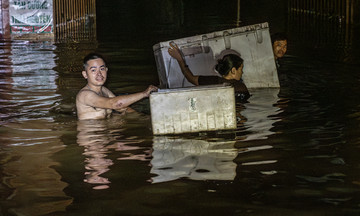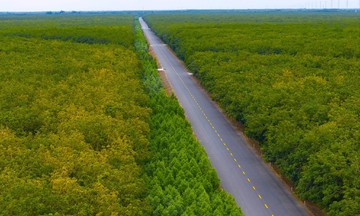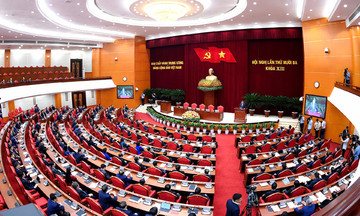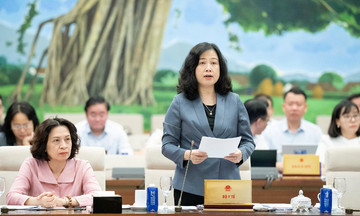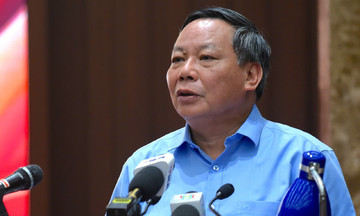After graduating with a construction degree in Quy Nhon, 34-year-old Tin, originally from An Tin commune (former Hoai An district, Binh Dinh), went to work in southern Vietnam. In 2014, he decided to return to his hometown and start a bird farm.
Having loved animals since childhood, Tin wanted to raise unique and rare birds. After obtaining a source code for red pheasants, he submitted an application to the Forest Protection Department and was guided through a site survey for his farm. "Once all conditions are met, a permit is issued within one to two months", he explained.
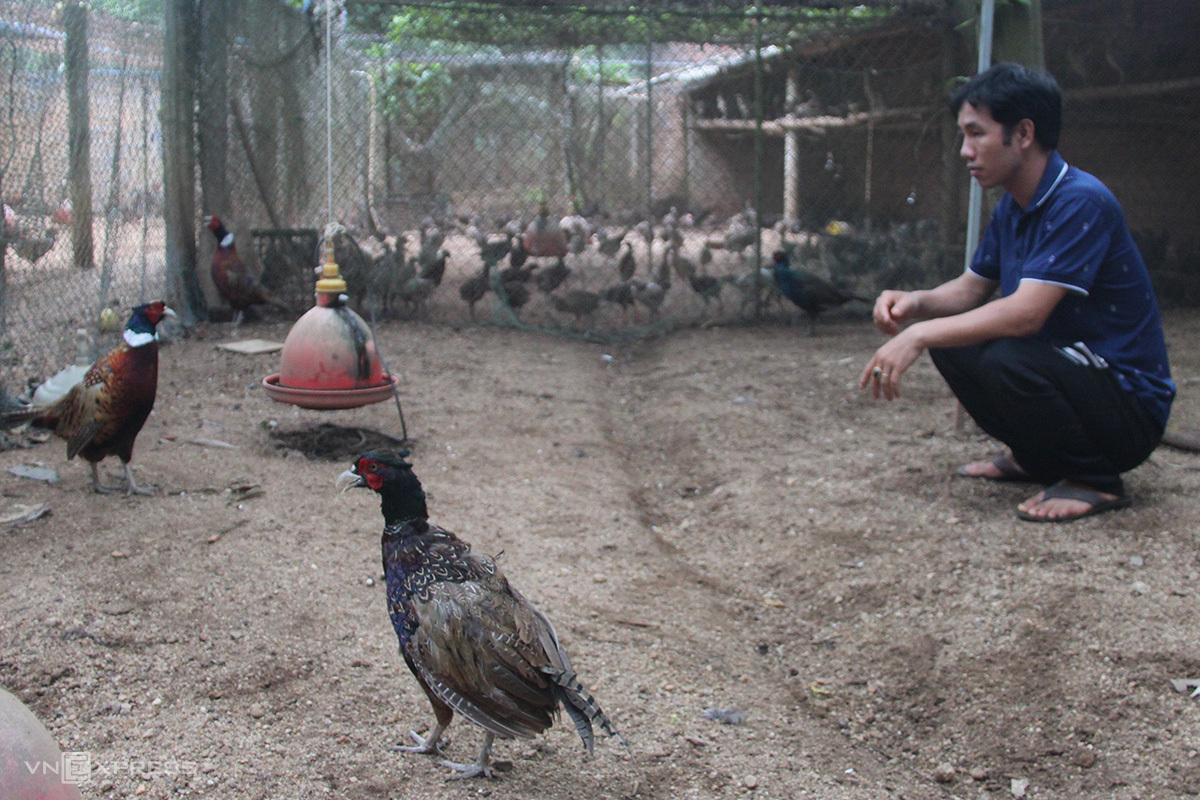 |
Tin checks and cares for birds at his farm. Photo: Tran Hoa |
He built a 30 m2 net enclosure next to his house and started raising over 160 pheasants. He would sleep in a hammock at the farm at night to monitor the chicks. The birds' diet consisted mainly of industrial chicken feed, supplemented with greens, worms, crickets, and fruit. "They have high resistance and only occasionally get sick due to weather or food. I usually give them garlic, leaves, or western medicine", he said. After 6 months, the pheasants reach 1.2-1.3 kg.
Following his initial success, he introduced more species, including Lady Amherst's pheasants, Indian peafowl, and Vietnamese yellow-cheeked peafowl, for breeding. Currently, his farm spans hundreds of square meters and houses over 1,000 birds in various enclosures for breeding, free-range, and incubation purposes. Among them, the Vietnamese yellow-cheeked peafowl is a rare endemic species, belonging to group IB (strictly prohibited from exploitation), and is under strict protection. The Indian peafowl is also listed in the CITES appendices as an endangered species.
Tin stated that he only sells peafowl to bird enthusiasts and does not use them for food as prohibited by law. To prevent gene degradation, he regularly imports new eggs and breeding stock. He reports any dead or diseased birds to the authorities.
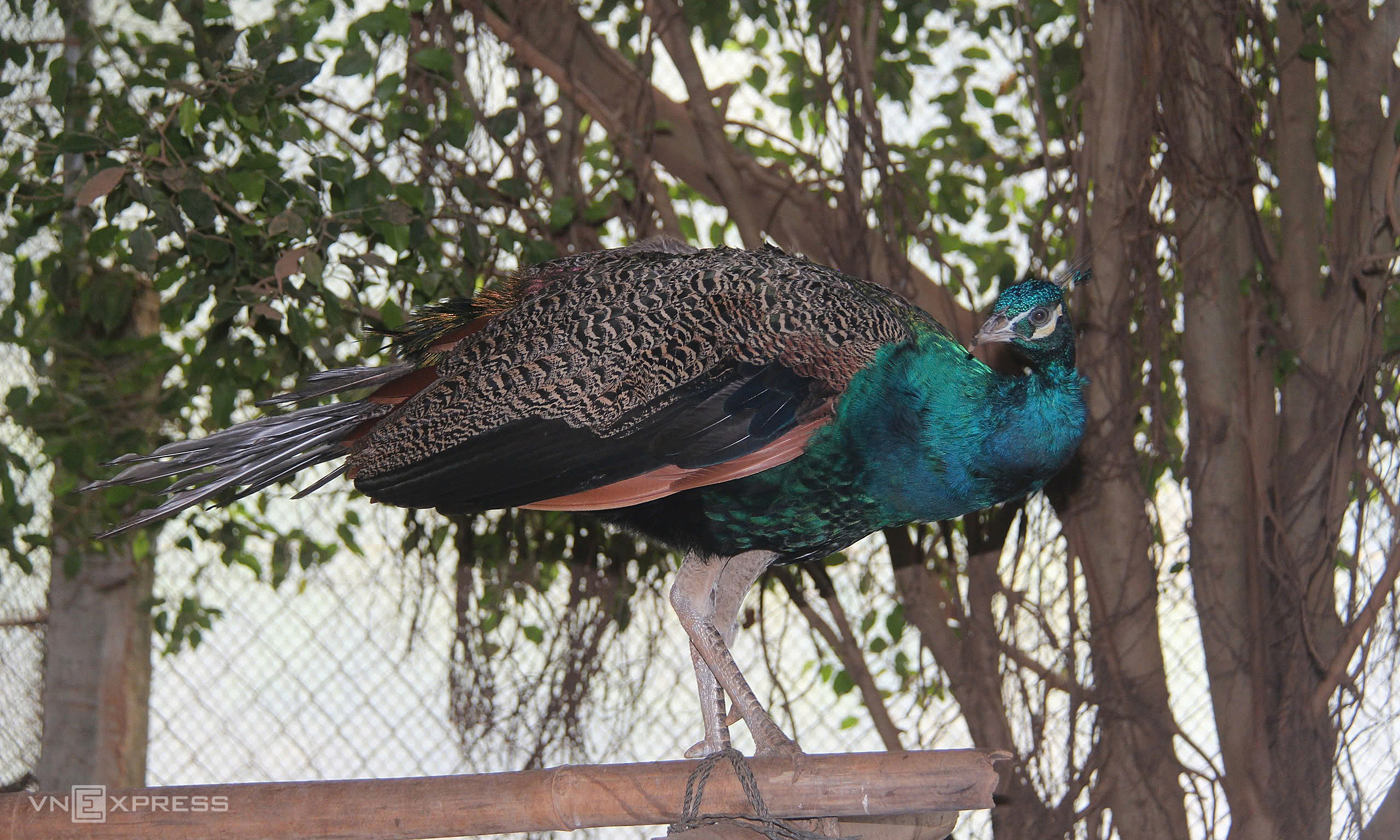 |
Yellow-cheeked peafowl, a rare endemic species raised on Tin's farm. Photo: Tran Hoa |
Each year, the farm generates about one billion VND for him. In addition, he provides technical support and breeding stock to 30-40 households in neighboring provinces, while also purchasing their products. He employs 4-5 permanent workers with salaries of 5-6 million VND/month, along with dozens of seasonal workers during peak times.
In 2024, he was awarded the third-class labor medal by the president for his achievements in creating livelihoods for many poor households, becoming a model farmer with his rare bird breeding. "I was very surprised and delighted to be invited to the district to receive the medal", he said.
On several occasions, Tin has encountered people trapping wild chickens and unusual birds. He buys them or exchanges them for domestic chickens weighing twice as much. He brings them back, cares for them, and then releases them into the wild. "These species are accustomed to living in the wild, so it's difficult to raise them successfully. Without a permit, it could be a legal violation", he explained.
According to Tin, the law does not prohibit breeding rare wildlife, but breeders must prove the legal origin of their stock and have clear permits. Recently, he imported some white pheasants for trial breeding. Previously, this species belonged to group IB (strictly prohibited from exploitation), requiring applications to be submitted to the central government. Now that it has been moved to group IIB (restricted exploitation), he submits the paperwork to the provincial Forest Protection Department to obtain a breeding code.
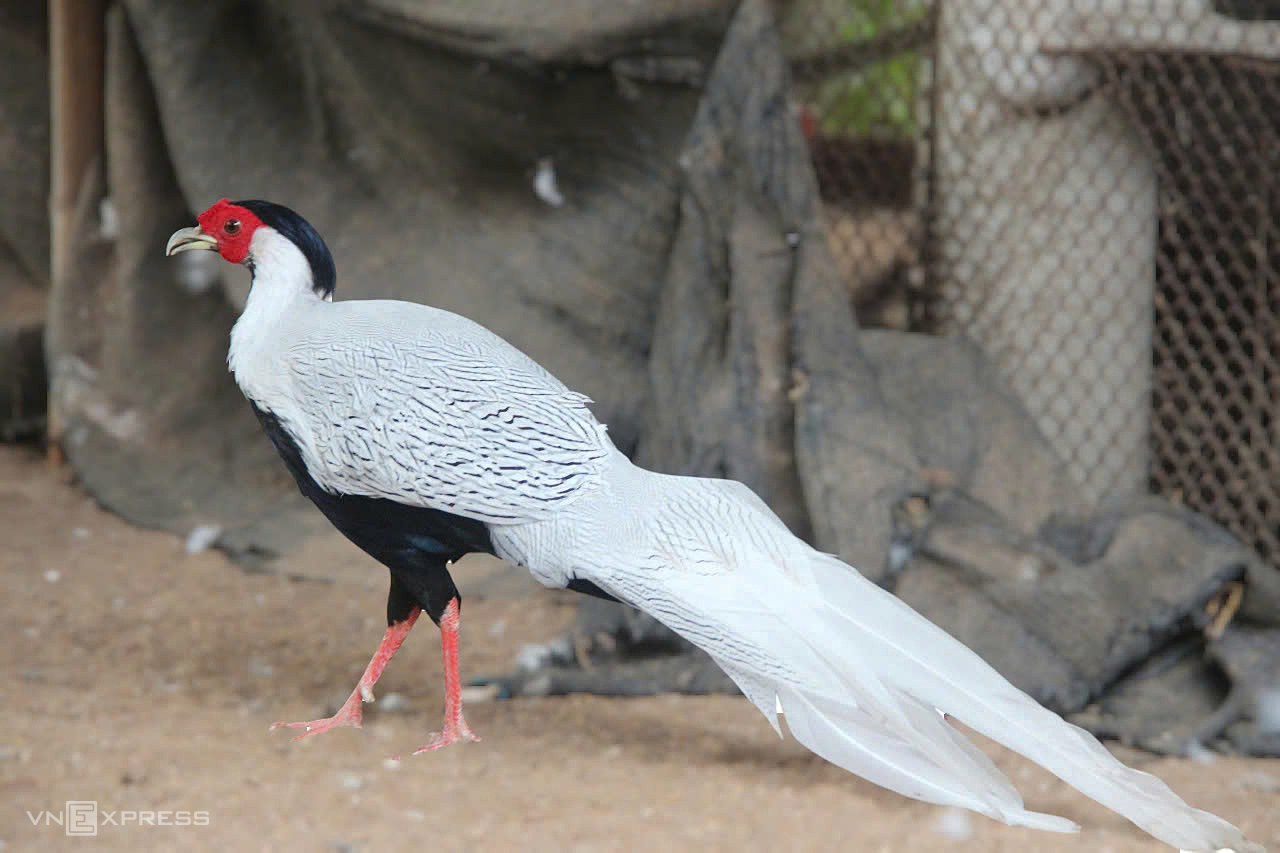 |
White pheasants recently imported by Tin. Photo: Tran Hoa |
Tin believes that people should be encouraged to participate in breeding rare species to contribute to conservation efforts. Many species in the wild are declining due to habitat loss, making it difficult for authorities to manage and protect them from hunting. If allowed to breed these species, people will treat them as their own assets and be more conscious of conservation, as they will benefit from it.
Nguyen Van Thang, Director of Kon Ka Kinh National Park (Gia Lai, home to many bird species listed in the Vietnam and world Red Books), said that raising rare and endangered wildlife requires registration and permits, whether for research, tourism, or breeding purposes. From a conservation perspective, if people are capable of breeding these species, they should be encouraged as it contributes to species preservation.
However, Thang cautioned that breeders must strictly adhere to regulations, especially for group IB species, which are subject to strict restrictions on breeding, transportation, and trade. For group IIB, the procedures are more flexible, but authorities still need to monitor to avoid the risk of losing control.
Tran Hoa




